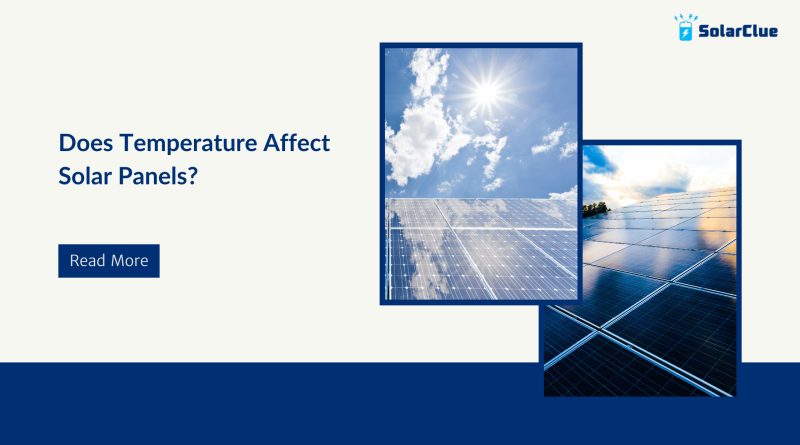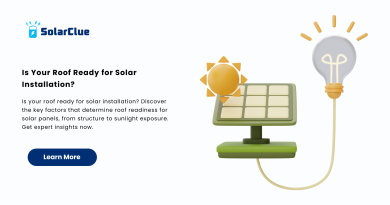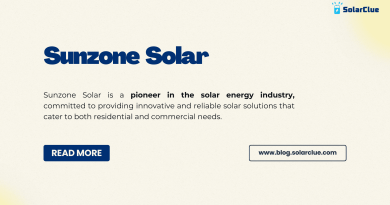Does Temperature Affect Solar Panels?
Solar panels are an excellent source of renewable energy, converting sunlight into electricity. However, their performance is significantly affected by temperature. Understanding how temperature impacts solar panel efficiency and exploring ways to mitigate adverse effects are crucial for maximizing energy output. This comprehensive guide delves into the temperature coefficient, optimal operating temperatures, and strategies for cooling solar panels.
Table of Contents
- 1 Understanding the Temperature Coefficient
Understanding the Temperature Coefficient
What is the Temperature Coefficient?
The temperature coefficient is a metric that indicates how the efficiency of a solar panel decreases with an increase in temperature. It is usually expressed as a percentage per degree Celsius (%/°C). A lower temperature coefficient means the panel is less affected by temperature changes.
Importance in Solar Panel Performance
Temperature affects the semiconductor materials in solar panels. As the temperature rises, the efficiency of these materials decreases, leading to reduced power output. Understanding the temperature coefficient helps in selecting panels that will perform better in hotter climates.
Optimal Operating Temperatures
Ideal Temperature Ranges
Solar panels operate most efficiently within a specific temperature range. Typically, this range is between 25°C (77°F) and 35°C (95°F).
Effects of High and Low Temperatures
1. High Temperatures: Increased temperatures can reduce the voltage output of solar cells, leading to lower overall efficiency. For every degree Celsius above the optimal temperature, the efficiency drops by the temperature coefficient percentage.
2. Low Temperatures: Colder temperatures generally improve solar panel efficiency, as they increase the voltage output. However, extremely low temperatures can cause mechanical stress and potential damage to the panels.
Strategies for Cooling Solar Panels
Passive Cooling Techniques
1. Adequate Ventilation: Ensuring proper airflow around the panels helps dissipate heat naturally.
2. Mounting Systems: Using elevated mounting structures allows air to circulate beneath the panels, reducing their temperature.
3. Reflective Coatings: Applying reflective materials around the panels can minimize heat absorption.
Active Cooling Solutions
1. Water Cooling Systems: Spraying water on the panels or using a water circulation system can effectively lower their temperature.
2. Phase Change Materials (PCMs): These materials absorb and release heat as they change states, helping to regulate panel temperature.
3. Thermal Management Systems: Advanced systems using fans or liquid cooling can actively control the temperature of solar panels.
Temperature Coefficients of Different Solar Panel Types
| Solar Panel Type | Temperature Coefficient (%/°C) |
|---|---|
| Monocrystalline Silicon | -0.3 to -0.5 |
| Polycrystalline Silicon | -0.4 to -0.5 |
| Thin-Film (CdTe) | -0.2 to -0.3 |
| Amorphous Silicon | -0.2 to -0.4 |
Conclusion
Temperature plays a critical role in the performance of solar panels. Understanding the temperature coefficient, identifying optimal operating temperatures, and implementing effective cooling strategies can significantly enhance the efficiency and longevity of solar panels. Whether through passive or active cooling methods, managing the temperature impact is essential for maximizing solar energy output.
Here at SolarClue®, we offer a smart, practical, and “beautiful” solution. You will be answered for all the questions related to Solar.
We provide all kinds of brands that are the Best Solar panels in India.
If you are the one who is planning for the solar power system. Don’t hesitate to contact our team!
Looking forward to empowering you with solar energy, just like hundreds of our other clients!
Frequently Asked Questions (FAQ)
Q1: How does temperature affect solar panel efficiency?
Temperature affects the semiconductor materials in solar panels, reducing their efficiency as temperatures rise. This is quantified by the temperature coefficient.
Q2: What is a good temperature coefficient for solar panels?
A lower temperature coefficient (closer to 0) is better, as it indicates less efficiency loss with temperature increases. Thin-film panels typically have better coefficients compared to crystalline panels.
Q3: Can solar panels overheat?
Yes, solar panels can overheat, especially in hot climates. Overheating reduces efficiency and can lead to long-term damage if not managed properly.
Q4: Are there solar panels designed for hot climates?
Some solar panels are designed with materials that have lower temperature coefficients, making them more suitable for hot climates.
Q5: What are some simple ways to keep solar panels cool?
Simple methods include ensuring proper ventilation, using elevated mounts, and applying reflective coatings around the installation area.



